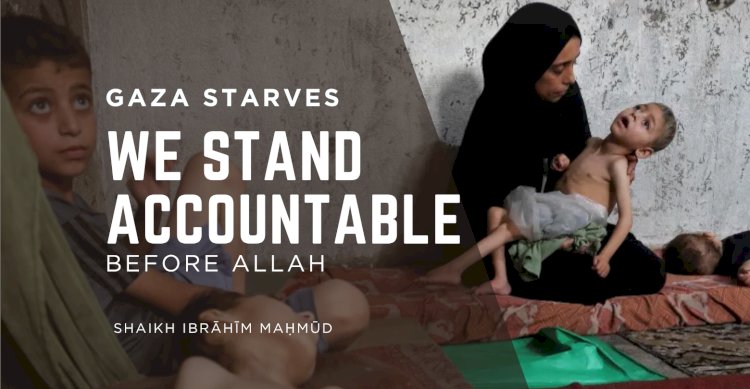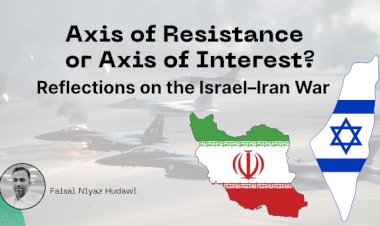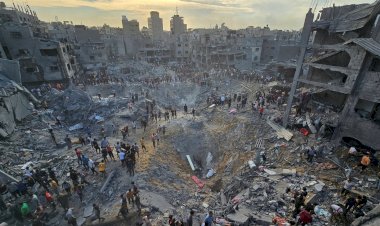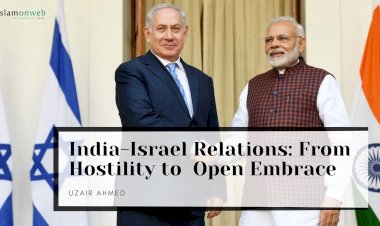Gaza Starves, and We Stand Accountable Before Allah
A brief Translation of the Friday Khutbah Delivered by Egyptian Scholar and Khaṭīb Shaikh Ibrāhīm Maḥmūd at Masjid New Salata, Doha, Qatar, on the Starvation in Gaza
Dear Believers,
Today, on this blessed Friday, we have gathered in this mosque. I wish to begin today's sermon with the words spoken just a week ago by the spokesperson of Ḥamās in Gaza, Abū ʿUbaydah. These were his words:
"O global Muslim community, O Arab brothers, O rulers of Muslim and Arab nations, and O Muslim scholars whose duty it is to guide them; here, a group of people are facing death due to starvation. In the coming days, the world may witness the greatest famine-induced catastrophe ever seen.
We have only one message: You are all responsible.
We who die as martyrs and meet our Lord will indeed bring all of you to account. The burden of the blood of thousands who are injured and martyred here lies upon your shoulders.
It is your silence and inaction that have emboldened the Zionist army to commit such extreme atrocities against us. Your silence and your indifference are their most powerful weapons. Therefore, none of you can escape the responsibility for these crimes. All of you will have to answer to Allah."
My eyes unknowingly welled up with tears as I heard the words of Abū ʿUbaydah.
Never before have I seen him speak in such a deeply emotional and trembling voice. One could see in his eyes the full reflection of the hunger they are enduring, the helplessness they face in front of starving, crying children. These are the very people who faced the bullets and missiles of the enemy with open arms, yet now they stand powerless before the calamity of starvation. One could almost read in his words the looming fear of death from hunger that may overtake them soon.
Every one of those piercing words felt as though they included me too. In the days since then, I have barely been able to sleep. Whether I look at my children or sit down to eat, Gaza and its people come before my eyes. The question that keeps tormenting me is: What answer will I give to Allah?
We often refer to Gaza as Bayt al-ʿIzz—the House of Honour. But today, the condition of Gaza is a collective humiliation for Muslims across the globe. Children, women, and the elderly struggle and push in crowds for a single meal or a bit of thin gruel, queuing in front of aid trucks. These are not strangers; they are our own brothers and sisters. In fact, they are stronger in īmān, dīn, and adherence to Sharīʿah than many of us. Among them are women and men who have memorised the Qur’an, great scholars and preachers, and chaste women who have never shown their faces before non-maḥram men. Today, they walk the streets seeking anything that might silence their children's cries, standing with open hands even in front of the so-called aid delivered by the very enemies who bombed them.
And even as they wait in those lines, knowing full well they might be killed at any moment, the only thing that matters to them in that instant is hunger—the stark, undeniable truth of their reality.
Dear Brothers,
What answer will we give to Allah?
We are a community of two billion. We govern over more than fifty countries. We are among the most privileged in the world in terms of wealth and comfort. The natural resources of our lands are what sustain the prosperity of many global powers. Yet, how did we end up like this?
We are shamed today before a group of aggressors whose numbers are not even one-hundredth of ours. Even the hunger of innocent children, women, and the elderly fails to awaken us. Hunger, a trial so severe that even the Prophets ﷺ sought refuge in Allah from it.
We cannot bear to see such a condition even befall animals. Whenever a case of cruelty against animals surfaces, we see scores of people rise up in protest on social media. But here, right before our eyes, hundreds of thousands of human beings are being deliberately starved to death. And this while thousands of aid trucks loaded with essential supplies remain just a few miles away, waiting for permission to enter.
This is not a lack of means; it is a failure of will and a void of moral leadership.
During the caliphate of ʿUmar (ra), history tells us how deeply distressed he was when a famine struck the land.
As Caliph, he provided only enough bread to his children to keep them alive for months, and he told them:
"I am the Caliph. Allah has entrusted me with the affairs of this Ummah. If even one person goes hungry during this time, then I am the one responsible. Until I am certain that the hunger of even the last person in society has been relieved, you will not receive anything more from me."
Has all of this become nothing more than historical tales and passionate speeches for us now?
What has happened to our rulers? And what has become of the scholars whose duty it is to advise them?
If they still do not awaken now, there is no hope that those responsible within this Ummah will ever awaken.
Why is it that you cannot bring yourselves to say, in one united voice, “This must not happen”?
What stops you from doing the least necessary to let those aid trucks, lined up at the border, enter?
Who are you afraid of when it comes to delivering food, water, and medicine to your brothers and sisters who have become nothing but skin and bone?
As the Prophet ﷺ described, we have truly become like the scum on floodwaters, weightless, scattered, and worthless.
O Allah, I have done what I could.
We entrust our afflicted brothers and sisters to You alone.
You be their Guardian and their Protector.
Disclaimer
The views expressed in this article are the author’s own and do not necessarily mirror Islamonweb’s editorial stance.
























Leave A Comment